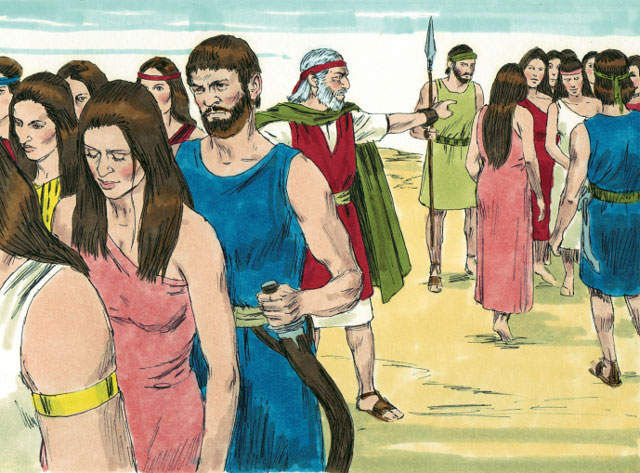A Prayer and Fasting Devotional
 And the Lord said to Moses, “Pass on before the people, taking with you some of the elders of Israel, and take in your hand the staff with which you struck the Nile, and go. Behold, I will stand before you there on the rock at Horeb, and you shall strike the rock, and water shall come out of it, and the people will drink.” - Exodus 17:5-6
And the Lord said to Moses, “Pass on before the people, taking with you some of the elders of Israel, and take in your hand the staff with which you struck the Nile, and go. Behold, I will stand before you there on the rock at Horeb, and you shall strike the rock, and water shall come out of it, and the people will drink.” - Exodus 17:5-6Exodus 17:5-6 is located in the portion of Scripture that chronicles the experience of the people of Israel after their exodus from Egypt. After God delivers the Israelites from bondage in Egypt, they journey into the wilderness where they exhibit a cyclical pattern of crisis, unbelief, disappointment, and then blessing and/or chastisement from God. At its core, Israel’s rebellion against their God is rooted in unbelief. The unbelief is expressed in the form of sinful men assassinating the character of a Holy God.
The Old Testament narrative reveals God as healer (Exodus 15:26), provider (Exodus 16), and protector (Exodus 17:8-16) to Israel, but, again and again, the children of Israel are stubborn and rebellious, second-guessing the faithfulness and goodness of the God who delivered them from bondage. Like Israel, I can see in my own life a propensity to forget about the stellar track record of God’s faithfulness when a trial comes my way. When faced with life’s struggles, I grumble against God, believing that my current struggle is good enough reason to lack confidence in God’s love—despite His track record of faithfulness towards me.
In Exodus 17:4, we see Israel’s sinful unbelief provoke Moses to “cry to the Lord” for help as his countrymen seek to stone him for calling out their sin. But even in the midst of this blatant sin, God’s response to Israel reveals His simultaneous righteousness and mercy. In His mercy, God doesn’t leave Israel to die in the wilderness, and He graciously provides for them. The prophet Isaiah testifies that “When the poor and needy seek water, and there is none, and their tongue is parched with thirst, I the LORD will answer them; I the God of Israel will not forsake them” (Isaiah 41:7).
God’s second act of mercy is seen in Exodus 17:5-6 where God responds to Israel’s charge (against Him) that He’s brought them out of Egypt to let them die and is, in fact, a negligent God. God agrees to be “tested” in this “mock trial” but on the condition that He simultaneously stand as the accused AND as Judge. God orders Moses to take the “staff with which he struck the Nile” which is a clue that judgment is about to occur. In Exodus 17:6, God stands before Israel “on the rock” and in a very real sense becomes one with the rock, decreeing that the rod of judgment be brought down upon Himself. Then He absorbs His own wrath, so that He might pardon and give life to Israel. Revealing His true character, God provides for Israel’s physical need as well as for their spiritual need. All they wanted was water, but God provided Himself as a propitiatory sacrifice to absorb and bear the rod of judgment that should have been theirs.
The work of God as seen in Exodus 17 ultimately points to the work of Jesus Christ who, through his incarnation, death and resurrection, becomes the living, spiritual rock that is bruised and crushed for our sins (1 Corinthians 10:4). Just as the rock in Exodus 17 was struck and spewed out water to nourish and literally give life to thirsty Israel, on the cross Jesus Christ was pierced and the blood and water that flowed from his side (John 19:34) justified sinful man, bringing life where there was the sentence of death. Christ’s shed blood justifies sinful man by satisfying the righteous wrath of God, thus saving sinful people like you and me by His atoning sacrifice (1 John 1:7).
Today, if you are struggling with unbelief and tempted to grumble in anger at God, take refuge in the gift of prayer purchased by the blood of Christ and thank God for the fact that “God permits nothing to be done, which affects His children but they would do themselves if they were as wise, as judicious, and as far-seeing as He is.”[1]
In fact, it is the trials that God sends our way that He intends to use to remind us of His covenant commitment to us and to spur us to faithful dependence on Him. On this day, let us remember that God’s heart toward His children never changes, despite changing circumstances, and take comfort in God’s provision of the gift of prayer to ask Him for the strength to endure until we meet Him.
Ministry Fellow at Columbia
[1] "Good and Evil Alike from God", James Smith, 1861 http://www.gracegems.org/2011/01/short.html












